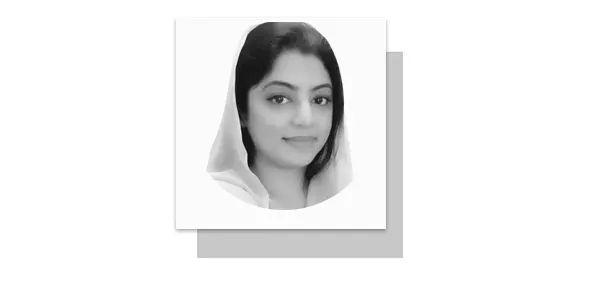Mehr un Nisa
The Declaration on Human Rights Defenders, adopted unanimously by the United Nations General Assembly in 1998, solidifies the commitment of UN member states to protect the right of every individual to promote, protect, or strive for the realization of human rights and fundamental freedoms through peaceful means. The declaration recognizes the vital role played by human rights defenders in upholding the rights enshrined in the Universal Declaration of Human Rights and international human rights law treaties.
Human rights defenders are invaluable indi-viduals who champion the promotion, protection, and realization of human rights and fundamental freedoms. They expose human rights violations, advocate for good governance, transparency, and the rule of law. Their unwavering efforts contribute significantly to the fulfillment of human rights and the UN’s 2030 Agenda for Sustainable Development.
The Indian Occupied Jammu and Kashmir has long been a subject of political and human rights concerns. In recent years, there has been a disturbing intensification of the crackdown on human rights defenders in the region, characterized by repression and intimidation tactics employed by the authorities to silence dissent and stifle civil society.
One key aspect that warrants examination is the Unlawful Activities (Prevention) Act (UAPA) and its implications for human rights defenders, media professionals, and civil society in Indian Occupied Jammu and Kashmir. The UAPA, initially designed to combat terrorism, has been frequently misused to suppress voices of dissent, with individuals being labeled as “terrorists” without due process. This misuse not only undermines the right to freedom of expression and association but also hampers the work of human rights defenders and media organizations striving to expose human rights violations.
Khurram Parvez, a prominent human rights activist, has been arbitrarily detained since November 2021 as an act of reprisal for his vital work in documenting and advocating for human rights in the region. The recent filing of criminal cases against Khurram Parvez and Irfan Mehraj, a journalist and human rights defender, in March 2023, further alarms the international community, as it signifies the ongoing pattern of reprisals against defenders.
The United Nations and various human rights organizations have repeatedly called for the release of human rights defenders detained in Indian Occupied Jammu and Kashmir, emphasizing the need for accountability for any abusive actions.
On March 24, 23, Mary Lawlor, UN Special Rapporteur on the situation of human rights defenders has called for an immediate end to India’s crackdown on Kashmiri human rights defenders. The arrest of Khurram Parvez on terrorism charges, along with journalist Irfan Mehraj and other arbitrarily detained defenders, has raised grave concerns. The escalating repression of civil society in Kashmir and the misuse of the Unlawful Activities (Prevention) Act are condemned. The release of detained defenders and accountability for arbitrary arrests are urged by the UN expert.
In a powerful statement on May 12, 2023, six-teen human rights organizations, including Amnesty International, collectively urged Indian authorities to cease the reprisals against human rights defenders and organizations in Indian Occupied Jammu and Kashmir. Specifically, they highlighted the concerning cases of Khurram Parvez, Irfan Mehraj, and the Jammu and Kashmir Coalition of Civil Society (JKCCS).
The intentions behind the attack on human rights defenders are starkly apparent and deeply troubling. Through the annulment of Article 370, the Indian government seeks to establish unwaver-ing dominion over the region, eradicating any means of accountability that would expose the grim reality of violence in Kashmir to both the people of India and the international community. This calculated move aims to shield the truth and suppress voices calling for justice, demanding our unwavering attention and collective action to ensure that transparency and accountability prevail in the face of such actions.
According to the 2023 World Press Freedom Index, India is ranked 161st out of 180 countries, while the Human Freedom Index 2022 places it at the 112th position out of 165 countries. India’s position in the Rule of Law Index of the World Justice Project has fallen to 77th out of 140 countries. These numbers indicate a troubling trend, reflecting the deterioration of dissent and human rights within the nation.
A recent report by the Business and Human Rights Resource Centre based in the UK has spe-cifically highlighted India as one of the most dan-gerous countries for human rights and labor activists in 2022. These factual figures underscore the urgent need for immediate action to address the alarming decline in human rights and ensure the safety and well-being of activists and citizens in India.
India, as a member of the international community, bears the responsibility to uphold human rights obligations under international law.
It is vital for the global community to foster international solidarity and advocate for the release of human rights defenders in Indian Occupied Jammu and Kashmir. Through collective action, including raising awareness, engaging with relevant stakeholders, and supporting local organizations, we can contribute to the protection and empowerment of these defenders. By standing in solidarity, the inter-national community sends a powerful message that the rights and well-being of those defending human rights in Indian Occupied Jammu and Kashmir must be upheld.
The writer, Mehr un Nisa, holds an MPhil in Peace and Conflict Studies from NDU and currently serves as Director of Research & Human Rights Desk at Kashmir Institute of International Relations.










